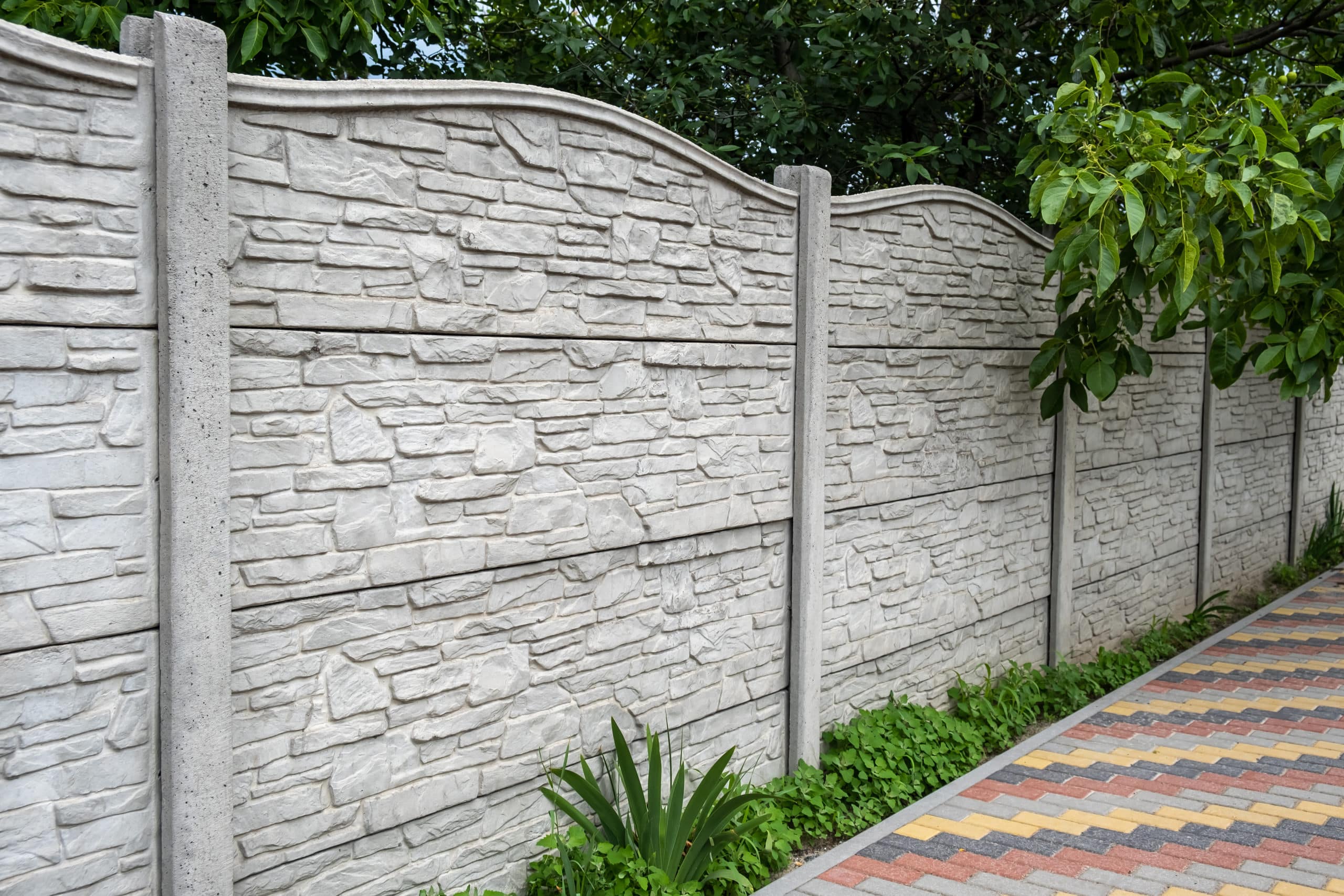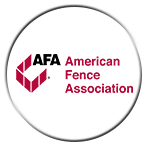Concrete is a staple in the construction industry, used as the building material for modern dams, bridges, buildings, foundations, roads, and driveways. With such a list, is it any wonder that fences can also be made from concrete? Concrete fences are versatile, used in commercial, residential, and industrial settings. They offer privacy and security, so they can even be used as livestock fencing, retaining walls, and fire barriers.
Though concrete does have a characteristic appearance, fences made from concrete do not need to look like they came directly from an industrial park. In fact, many of the walls around a development or home that look like brick or stone are actually made of concrete. If you are considering putting a concrete fence up on your property, here are a few thoughts to inform your decision.

Prepping the Fence
Concrete fences are prepared in a similar way across the board. The concrete is poured into steel trays—called molds—that are shaped and decorated specific to the manufacturer’s design. The poured concrete is then allowed to set. In the meantime, the place where the fence will be set up must be prepared. The ground must be leveled and, if necessary, a foundation poured. Once the ground and the concrete are ready, support posts are cemented into place. Once the posts are set, the precast concrete slabs are placed and locked in with a post cap. Panels must be fitted together properly to prevent unwanted guests.
Hollow Blocks
Precast concrete, the more usual option for concrete fencing, is formed of solid slabs of concrete. Hollow blocks, as the name implies, are another form of structural concrete that have a cavity in their middles. This makes them lighter than slabs and more weildy than traditional slabs. During installation, hollow blocks are stacked and mortared in place in the same way as bricks. It is a more time-consuming installation than regular slabs, and the structure is less durable because of the many joints. They are also more difficult to service because if one block is damaged, all the bricks keeping it cemented in the structure will also need to be removed.

The Pros of Concrete Fences
The biggest thing concrete fences have going for them is that they are durable. They endure through weather and other conditions, bugs, animals, and fluctuations of temperature. Once a concrete wall is set, that baby is not going anywhere. They are stronger than many other fencing options, and they have a high longevity. A properly installed fence made of concrete can last decades. Though a concrete wall is not cheaper than many other types of fence, installing one may prove to be cost effective because it is so long-lasting.
Because they are practically impervious to the weather, concrete fences are typically easy to maintain. They offer security and buffer sound very well, which is why they are ideal in commercial and industrial environments. They may also improve the resale value of a home. They are relatively straightforward to install, though installation must certainly be done by professional contractors, and they do offer a small variety of colors and designs.

The Cons of Concrete Fences
The biggest draw of a concrete fence can also be its biggest drawback. A fence made of concrete is permanent. If you are indecisive about your choices or unsure that you’ll be in your house for many years, know that concrete fences can last for 50 years or more. As they are so expensive initially, they are not for the faint of heart.
The ease of their installation only goes so far. Because they need to be molded and are by no means light, concrete slabs need to be created, transported, and installed by professionals. If you need to build your fence on sloped ground, the fence will require a foundation, which will pad your fence expenditure.
Concrete fences have a poor environmental impact and can never offer the same warm and inviting feeling that a wooden fence can, no matter how they are designed. In that same vein, styles are limited to the molds a contractor has on hand.
While they are sturdy, concrete fences are by no means maintenance-free. Concrete must be sealed to ensure full efficacy. Sealing closes the natural pores in concrete, which protects the fence from absorbing fluids, especially water. If concrete is not sealed, water can seep into the pores and expand and contract depending on the temperature, resulting in chipping or even cracking of the concrete fence.

















